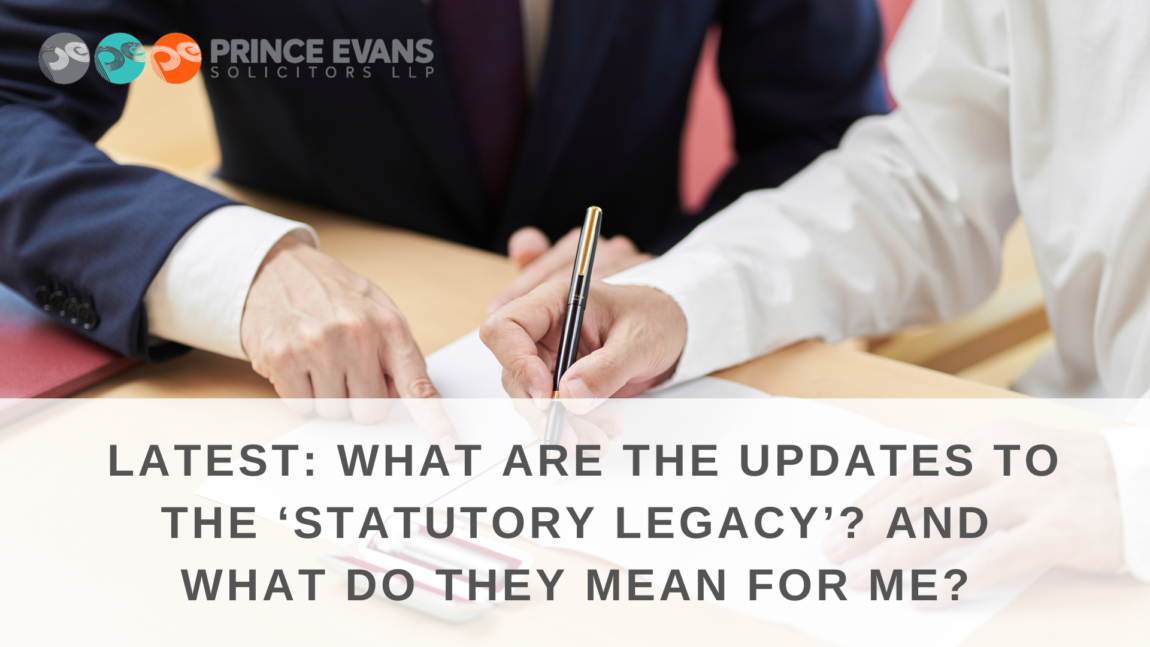
LATEST: What are the updates to the ‘Statutory legacy’? And what do they mean for me?
We are no strangers to seeing increases in inflation being reported across the media and the resulting impact which it is having across society.
Increased inflation has triggered a Government review and increase of the ‘statutory legacy’, which is the fixed sum a surviving-spouse is to receive under the intestacy provisions, where their spouse did not leave a valid will.
The relevant legislative provisions of the Administration of Estates Act 1925 were amended in 2014, where many of the recommendations contained within the Law Commission’s 2011 report:Intestacy and family provision claims on death, were implemented. At the time, the statutory legacy was set at £250,000 and was to be reviewed every 5 years. In November 2019 it was increased to £270,000, which took effect in 2020. The next scheduled review was not due until 2025.
The 2014 legislation provided that should inflation increase by 15% or more, from the base rate in the month which the previous review was conducted, before the next scheduled review, the Government are obliged to review and take steps concerning the statutory legacy amount, which was brought about in November 2022 where CPI data showed that there had been an increase exceeding 15% of inflation since November 2019, which initiated the review process.
The review concluded that as of 26 July 2023, the statutory legacy shall be increased to £322,000, which is £52,000 more than the previous figure; and the biggest single increase in recent history.
But, what does this mean in terms of inheritance?
It is important to bear in mind that any statutory legacy amount is applicable to the net value of your estate (i.e. the assets less the liabilities) and does not include any jointly held property such as joint accounts, or property held as ‘joint tenants’, as they are not assets which pass under a will or intestacy.
An estimated one-third of families in the U.K. are blended. If the net value of your estate is under the new £322,000 figure, and you do not have a will, you may inadvertently fail to make any financial provision for your children. Similarly, if you separate from your spouse or civil partner and do not make a Will, they would still stand to receive the statutory legacy, which may also be in conflict with your testamentary wishes.
It is important to consider whether not having a will is counter tax-efficient for your estate, which our team would be happy to discuss and advise on.
At Prince Evans, we suggest all clients to keep their wills under review regularly and urge those who do not have a valid will in place to get in touch to discuss how their wishes can be reflected and protected by drawing up a will.
Our Wills, Trust and Probate Team have a wealth of experience in advising clients in relation to Wills for blended families; and how wishes can be carefully accounted for to provide you with peace of mind.
Please feel free to contact us by telephone on 020 8567 3477 or by email at info@prince-evans.co.uk to discuss your requirements further.
